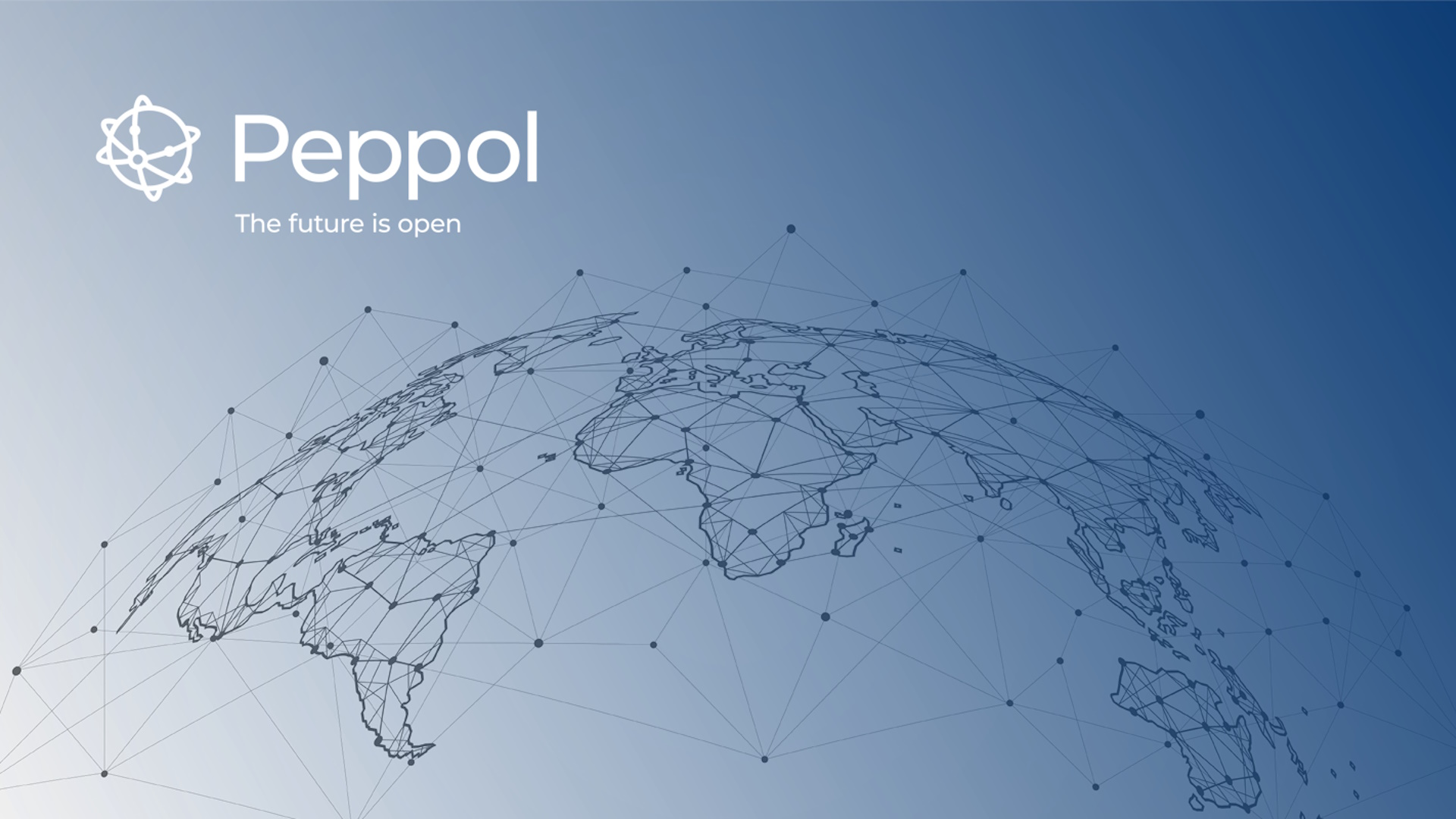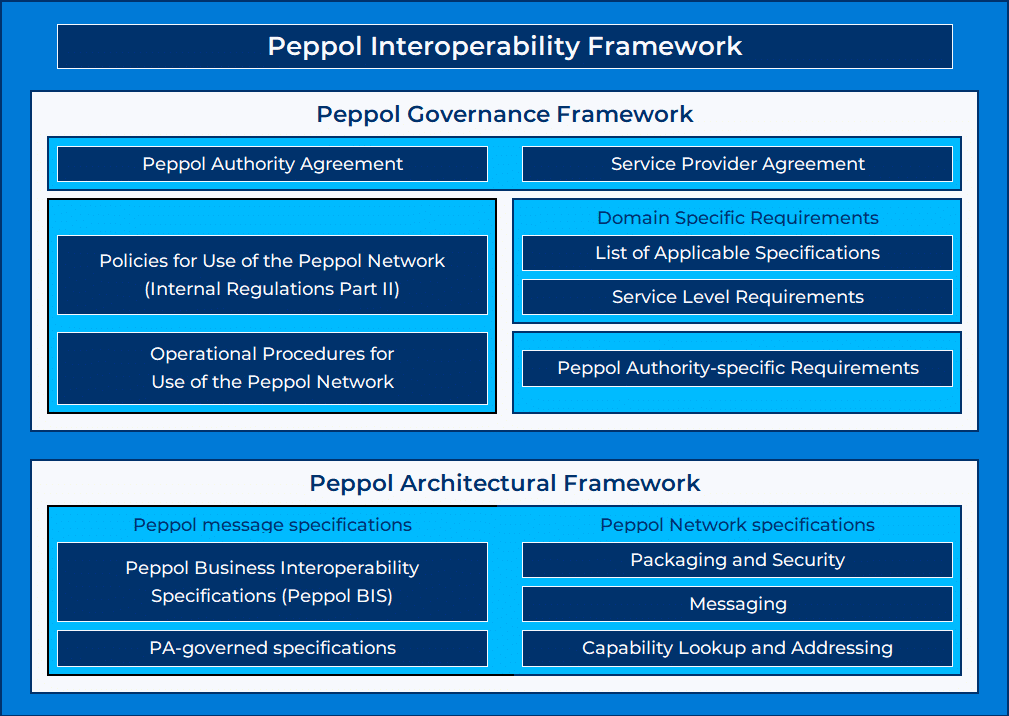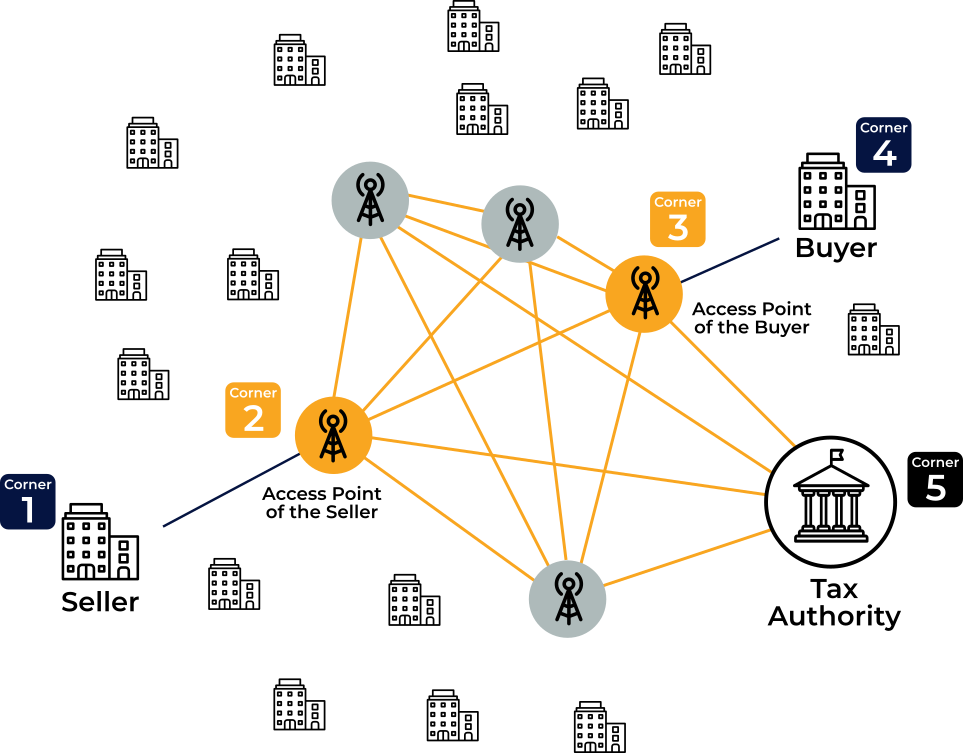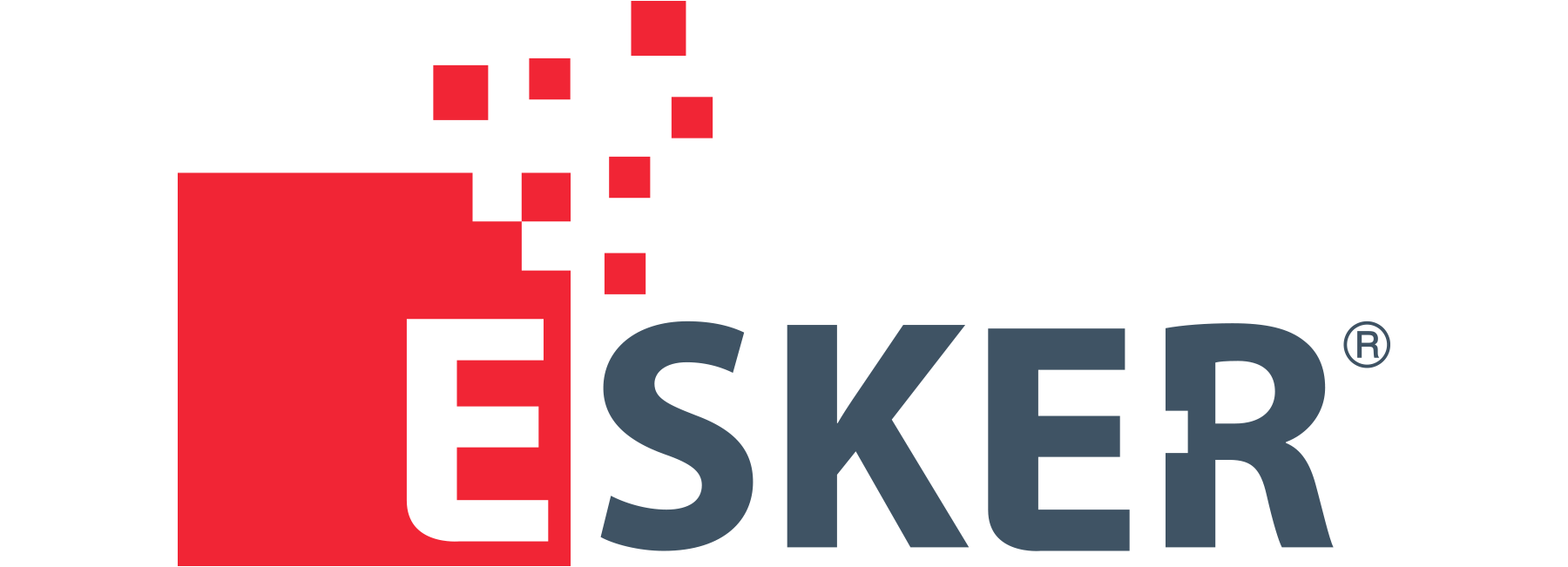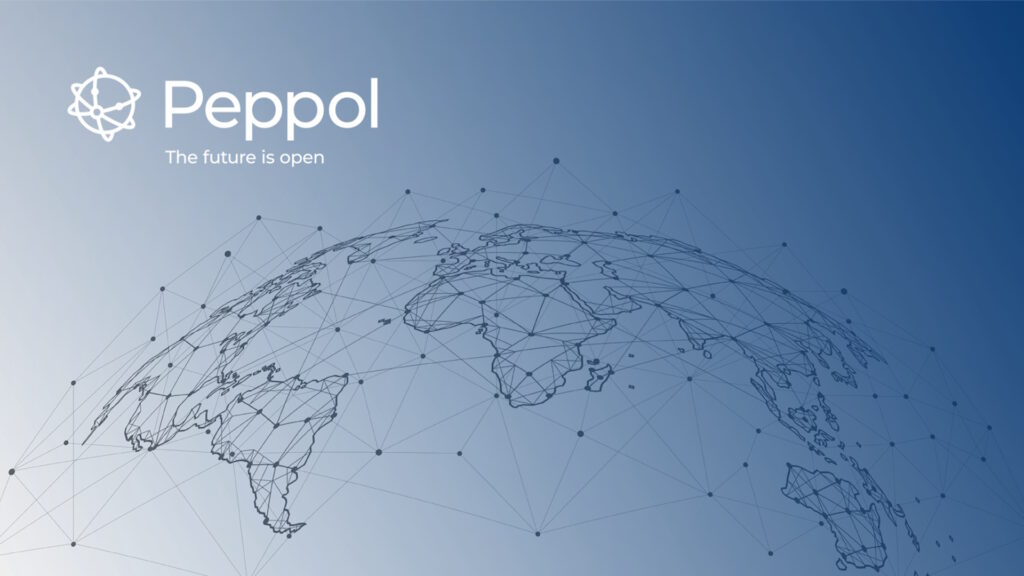A Brief History of Peppol
Last update: 2024, November 20
Summary
Peppol started as a European Commission initiative (2008-2012).
The initiative has since transformed into the global non-profit association OpenPeppol, and has also led to the development of the Peppol network, which enables seamless cross-border electronic document exchange.
Peppol has become a widely adopted framework by businesses and governments globally, serving as a cornerstone of international interoperability. Increasingly, national e-invoicing mandates involve the Peppol network to some extent or even rely on it entirely.
From a European Commission Initiative
to a global Non-Profit Association
Peppol’s history began over 15 years ago as a European Commission initiative and has since evolved into the global non-profit association, OpenPeppol.
This article will explore the journey of Peppol from its inception to its current role in facilitating seamless cross-border electronic document exchange and its adoption by businesses and governments worldwide via the Peppol Network.
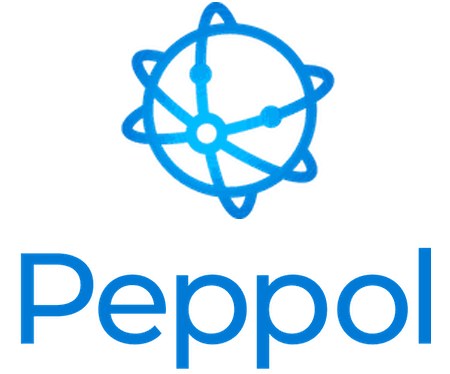
Exploring the Origins:
A European Commission Initiative
(2008-2012)
In the early 2000s, the need for a standardized electronic procurement system became evident as businesses sought efficient and secure means of exchanging procurement-related documents. This prompted the initiation of the Pan-European Public Procurement Online (PEPPOL) project in 2008, funded by the European Commission. This collaborative effort aimed to develop a framework for electronic procurement that would be universally accessible and interoperable across borders.
The Peppol project, with its consortium of European countries and private partners, focused on creating an open and secure network infrastructure. The goal was to enable businesses, particularly those engaged in public procurement, to seamlessly exchange electronic documents such as invoices, purchase orders, and catalogs. The project addressed the challenges posed by diverse procurement processes, languages, and systems across different European nations.
Over the course of four years, the Peppol project laid the groundwork for a standardized electronic document exchange network. Key components included the Peppol Transport Infrastructure (PTI), which facilitated the secure transmission of documents, and the Peppol Business Interoperability Specifications (BIS), defining the format and content of exchanged documents.
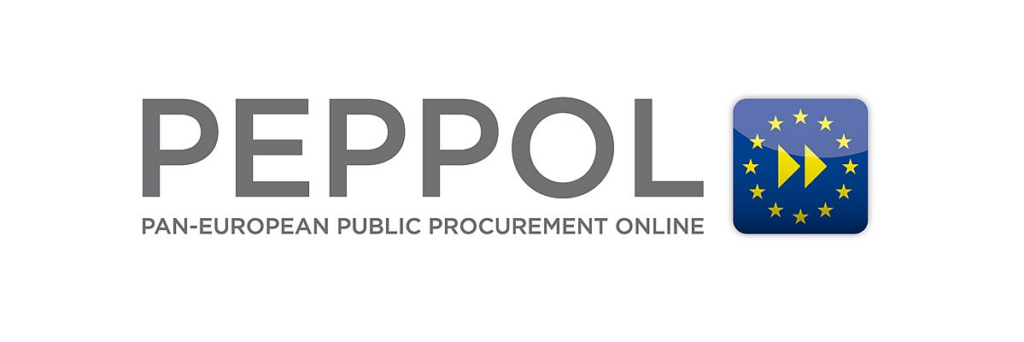
By the project’s conclusion in 2012, Peppol had achieved significant milestones, creating a foundation for the digitization of public procurement processes across Europe. The success of the project prompted the need for a sustainable and independent entity to carry forward its achievements into the future and extend into the private sector.
Even today though, some of the early “public procurement” focus is still visible in terms like “Pre-Award” and “Post-Award” throughout the Peppol artifacts.
Transition to a Non-Profit Association
(2012 Onward)
Post-2012, the Peppol network underwent a transformative phase, transitioning from a publicly funded European Commission initiative to an independent and self-sustaining entity. Recognizing the network’s potential to revolutionize electronic procurement globally, stakeholders moved to establish the OpenPeppol Association, a non-profit organization dedicated to maintaining and further developing the Peppol specifications.
The formation of the OpenPeppol Association marked a significant shift from a project-driven approach to a community-driven model. This transition allowed for broader participation from governments, businesses, and technology providers, stimulating a collaborative ecosystem committed to advancing electronic procurement standards.
The OpenPeppol Association assumed responsibility for the ongoing development, maintenance, and promotion of the Peppol specifications. It provided a governance framework that encouraged transparency, inclusivity, and responsiveness to the evolving needs of its diverse user base. This transition ensured that the Peppol network could adapt to the changing landscape of digital commerce and continue to meet the demands of a globalized economy.
In 2019, OpenPeppol discontinued the use of the acronym PEPPOL (Pan-European Public Procurement OnLine) and opted for the simpler name “Peppol.” This change was made to better represent its broader scale, extending beyond Europe, and its expanded scope, encompassing more than just public procurement.
Peppol's Expansion and Evolving Role
As of 2023, the Peppol network has become a cornerstone of global electronic invoicing, supported by a growing number of users and stakeholders, as governments, businesses, and service providers worldwide are increasingly adopting Peppol standards.
Additionally, the first implementations of 5-corner e-invoicing models (also called DCTCE – Decentralized Continuous Transaction Controls and Exchange) rely on Peppol. This model, which enables both the e-invoicing between companies and the e-reporting to the tax authority (the 5th corner) is gaining significant traction. It ensures that transactions comply with national regulations (such as specific invoice format & content or e-reporting obligations) while leveraging Peppol’s standardized protocols.
However, the integration of various national e-invoicing mandates within the Peppol framework can add complexity, as businesses and service providers must manage diverse local requirements within a single system.
Looking ahead, the OpenPeppol Association remains dedicated to evolving the Peppol specifications to keep pace with emerging technologies and changing business needs. By promoting collaboration among governments, businesses, and technology providers, the association aims to ensure that Peppol continues to serve the global market effectively.
Peppol Timeline
Peppol Project Initiation
Creation of the OpenPeppol Association
Norway Adopts Peppol
Peppol BIS 2.0 Format
Peppol BIS 3.0 Format
Singapore Adopts Peppol
PEPPOL Becomes Peppol
PINT Format
The Invoicing Hub Word
Peppol: a crucial framework for interoperability and scalability.
Over its 15-year journey, the PEPPOL (Pan-European Public Procurement OnLine) initiative has evolved into the well-known “Peppol”, expanding far beyond its original scope to become a vital infrastructure for secure, standardized document exchange between businesses and governments worldwide.
The widespread adoption of Peppol standards and the growing prominence of the 5-corner e-invoicing model underscore its increasing influence. However, this expansion introduces new complexities, as integrating various national mandates within a unified framework requires careful coordination.
Looking ahead, the OpenPeppol Association’s dedication to refining Peppol specifications ensures that this global network will continue to meet the demands of modern commerce.
It must do so without compromising on security, scalability, or the standardized formats and protocols that have driven its global adoption, offering businesses a practical and scalable solution for both national and cross-border document exchange.
Get your Project Implemented
Gold Sponsor
With connections to 31 countries and growing, we are continuously adding more countries to enhance our e-invoicing solutions, striving for full global coverage and compliance with each country's tax regulations.
OpenPeppol conference 2025 – Brussels, June 17-18
E-Rechnungs-Gipfel Berlin – June 23-25, 2025
B2G e-Invoicing now mandatory in Rheinland-Pfalz
[UPDATED] New OIOUBL 3.0 invoice standard released in Denmark
Peppol registration considered as automatic agreement for international e-invoicing in Belgium
The Invoicing Hub
experts can help you
Strategy, Guidance, Training, …

